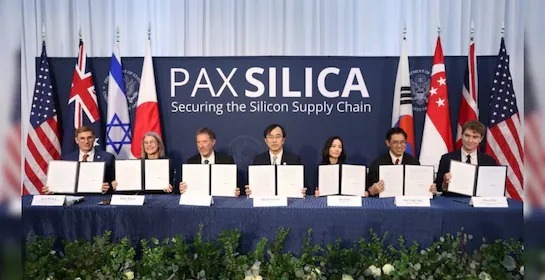Sudhindra Mohan Guba, J.@mdashThis reference u/s 256(1) of the I.T. Act, 1961, relates to the assessment years 1970-71 and 1971-72 and the relevant accounting years are the financial years ended on March 31, 1970, and March 31, 1971, respectively. The question involved before us is as follows:
"Whether, on the facts and circumstances of the case, the income from the trust property is includible in the total income of the assessee ?"
2. The assessee is an individual. By a deed of indenture dated March 5, 1962, the assessee settled his property at 35A, Badan Roy Lane, in trust for the benefit of his wife and children. Under the said deed, the trustees were directed to pay the income of the said trust property to the assessee''s wife during her lifetime and thereafter to his children after meeting the outgoings like rates, taxes, etc. The assessee continued to live in the said property. For the first time in the assessment years under reference the assessee claimed that the income from the said property should not be included in his total income. It was found by the ITO that all along in the past the income from the said property was included in the total income of the assessee and that the assessee, in fact, enjoyed the rent from the said property up to the assessment year 1966-67. In this view of the matter, he included "the value of the dwelling house" of Rs. 2,534 and Rs. 1,681, respectively, in the total income of the assessee for the two years under reference.
3. An appeal was preferred before the AAC by the assessee. It was argued that it was of no importance whether the assessee had previously claimed deduction of the value of the dwelling house or not. It was contended that since the assessee had created an irrevocable trust in respect of the said property, the ITO was not justified in including the income from the said property in the total income of the assessee. Upholding the contentions of the appellant, the AAC, while deleting the aforesaid sums from the total income of the assessee observed as under:
"First point of dispute is whether the appellant continued to be the owner of the said house. It was only in the case of an owner that a notional income from a house property can be applied. The Income Tax Officer has not held that the trust is revocable. Though he has hinted so, he has not come to a categorical finding that the claim of trust is bogus. In view of the registered deed duly executed, it was on the Income Tax Officer to disprove that there was a valid trust. The Income Tax Officer has not looked into the details and has not seriously challenged the validity of the trust. He has also not brought on record whether transfer of property to trust was disclosed for the purpose of gift-tax and in any other connection for his Income Tax records. All that he has stated is that since the appellant continued to enjoy the benefit of his property, the claim of trust was not admissible. On the available facts I hold that the ownership relates to the trust and notwithstanding that the appellant resides in the same house income cannot be added to his own income without disproving the bogus nature of the trust."
4. Being aggrieved by the order of the AAC, the revenue came up in appeal before the Tribunal. According to the revenue, the AAC had clearly overlooked the provisions of Section 64(v) of the Act which was invoked by the ITO. In view of that provision the ITO had not to establish the "bogus nature" of the trust. The provisions of that section, according to the department, were applicable to a trust which was valid and good in law. Under this provision a transfer should not only be for good consideration but should be for adequate consideration in order that the assessee''s case may not fall within the mischief of that section. The decision in
5. On behalf of the assessee, it was, on the other hand, contended that since the assessee had created irrevocable trust and was not deriving any benefit from the said trust, the AAC was fully justified in deleting the aforesaid amounts from the total income of the assessee. Reliance was placed on Sections 61 and 62 of the Act in this connection. Lastly, it was contended that since the assessee was not the owner of the trust property, the income therefrom could not have been included in the total income of the assessee as Sections 22 to 24 of the Act were applicable only to an assessee who is the owner of the house property.
6. While disposing of the appeal the Tribunal observed that Section 64(v) of the 1961 Act was the section which the AAC ought to have considered while deciding the appeal. It was further observed that Section 64 applied to both revocable as well as irrevocable transfers. As regards the submissions made on behalf of the assessee about the ownership of the house property in question, the Tribunal referred to Section 27(1) of the 1961 Act, which says that an individual who transfers otherwise than for adequate consideration any house property to his or her spouse, not being a transfer in connection with an agreement to live apart, or to a minor child not being a married daughter, shall be deemed to be the owner of the house property so transferred. Thus, the Tribunal allowed the appeal and set aside the order of the AAC and restored that of the ITO.
7. As stated earlier, by the deed of indenture dated March 5, 1962, the assessee settled his property at 35A, Badan Roy Lane, in a trust for the benefit of his wife and children. In order to give effect to the desire and on consideration for making provision for the wife and children the settlor transferred and assigned to the trustees the trust property upon the trusts with powers enumerated in the deed but subject to the payments of all rates, taxes and other outgoings. Clause (b) of the trust deed which is very important may be quoted as follows:
"(b) To pay the balance of the income of the trust property to the wife of the settlor during the term of her natural life for the maintenance of herself and the children of the settlor and the marriage expenses of the unmarried daughters of the settlor."
8. Thus, on payment of rates, taxes and other outgoings the balance of the income was to go entirely to the wife and children.
9. The Tribunal appears to have considered the inclusion of the sums of Rs. 2,534 and Rs. 1,681 in the total income of the assessee in view of Section 64(v) of the 1961 Act. This section lays down that in computing the total income of an individual, there shall be included all such income as arises directly or indirectly to any person or association of persons from assets transferred otherwise than for adequate consideration to the person or association of persons by such individual, to the extent to which the income from such assets is for the immediate or deferred benefit of his or her spouse or minor child (not being a married daughter) or both.
10. The learned counsel for the assessee takes us through the provisions of Section 27(1) of the Act which lays down that an individual who transfers otherwise than for adequate consideration any house property to his or her spouse, not being a transfer in connection with an agreement to live apart, or to a minor child not being a married daughter, shall be deemed to be the owner of the house property so transferred. According to him, the house had no income and the notional income could not be included in the assessee''s income. He cites the decision of the Supreme Court in
11. As regards the submission made by the learned counsel for the assessee about the ownership of the house property in question, Section 27(1) of the Act which was quoted earlier is a complete answer, for it shows that an individual who transfers otherwise than for adequate consideration any house property to his or her spouse, not being a transfer in connection with an agreement to live apart, or to a minor child not being a married daughter shall be deemed to be the owner of the house property so transferred.
12. In reply to the contentions made by the learned counsel for the assessee Mr. Sengupta, learned counsel for the revenue refers to the decision in
13. In reply to the arguments of the learned counsel for the assessee regarding the notional income Mr. Sengupta refers to the decisions of the Supreme Court in
14. There is great force in the arguments of Mr. Sengupta and in our opinion also the Tribunal has rightly applied Section 64(v) of the I.T. Act, 1961, in view of the aforesaid clause of the trust deed, and accordingly, we answer the question in the affirmative and in favour of the revenue.
15. Each party to pay and bear its own costs.
Deb, J.
16. I agree.

